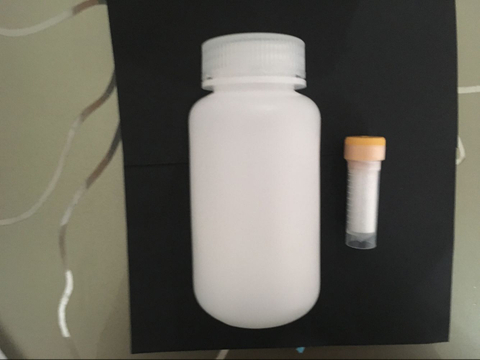Stretch Marks: Understanding, Prevention, and the Role of Peptides in Removal
Stretch marks are a common concern for many people, especially after pregnancy, rapid weight gain, or growth spurts. While they are harmless, many seek solutions to reduce their appearance for cosmetic reasons. This article delves into what stretch marks are, why they appear, and explores the promising role of peptides in reducing or eliminating them.
What Exactly is a Stretch Mark?
Stretch marks, also known as striae, are long, narrow streaks or lines that develop on the skin. They occur when the skin is stretched too quickly, causing the collagen and elastin fibers in the dermis to rupture. This tearing results in visible scars that start as red or purple and gradually fade to white or silver over time.
Common Causes of Stretch Marks
Stretch marks can develop for various reasons, including:
Pregnancy: Hormonal changes and rapid skin stretching during pregnancy make stretch marks common for expectant mothers.
Rapid Weight Changes: Significant weight gain or loss can overstretch the skin.
Growth Spurts: Adolescents undergoing puberty often develop stretch marks as their bodies grow quickly.
Genetics: A family history of stretch marks increases your likelihood of developing them.
Certain Medical Conditions: Conditions like Cushing's syndrome or Marfan syndrome may predispose individuals to stretch marks.
Corticosteroid Use: Prolonged use of corticosteroids can reduce skin elasticity, making it prone to stretch marks.
Can Anything Prevent Stretch Marks?
While preventing stretch marks entirely may not be possible, certain practices can minimize their likelihood:
Hydration: Keeping your skin moisturized improves elasticity. Products containing shea butter, hyaluronic acid, or almond oil may help.
Balanced Diet: Consuming foods rich in vitamins A, C, and E, along with zinc and protein, supports skin health.
Gradual Weight Changes: Avoiding rapid weight fluctuations can reduce skin stress.
Topical Creams: Some evidence suggests that applying retinoid creams or products containing centella asiatica may help.
What Can Get Rid of Stretch Marks?
Stretch marks are notoriously challenging to eliminate entirely, but several treatments can reduce their appearance:
1. Topical Treatments
Retinoids: Prescription retinoids like tretinoin can boost collagen production and improve skin texture.
Peptides: Emerging research suggests that peptides may promote collagen synthesis, making them a potential solution for stretch marks.
2. Medical Procedures
Laser Therapy: Stimulates collagen production and reduces discoloration.
Microneedling: Creates micro-injuries in the skin to encourage healing and collagen production.
Chemical Peels: Exfoliates the skin, helping improve its texture.
Radiofrequency Therapy: Uses heat to tighten skin and stimulate collagen.
What Peptides Can Remove Stretch Marks?
Peptides are short chains of amino acids that act as building blocks for proteins like collagen and elastin. They have gained attention in skincare for their ability to regenerate skin and improve its elasticity.
How Peptides Work
Peptides penetrate the skin and signal cells to produce more collagen and elastin. This regeneration can help repair the torn dermal structure that causes stretch marks.
Types of Peptides for Stretch Marks
Palmitoyl Pentapeptide-4: Known for its collagen-boosting properties, it can improve skin texture and elasticity.
Myristoyl Pentapeptide-17: Commonly used in anti-aging products, this peptide enhances collagen and elastin production.
Copper Peptides: These combine peptides with copper ions, accelerating wound healing and promoting skin repair.
Peptide-Infused Products
Many skincare products incorporate peptides specifically formulated to target stretch marks. Look for products labeled with these peptides or consult a dermatologist for recommendations.
When to Seek a Dermatologist's Expertise
While stretch marks are a cosmetic concern, there are times when consulting a dermatologist is advisable:
If your stretch marks are accompanied by other symptoms, such as pain or itching.
If over-the-counter products and home remedies have not shown improvement.
If you’re interested in advanced treatments like lasers, microneedling, or peptide therapy.
Why Peptides are a Game-Changer for Stretch Marks
Peptides stand out due to their ability to repair and rebuild damaged skin at a cellular level. Unlike harsh treatments that can irritate sensitive skin, peptides are generally well-tolerated and versatile. They can be used in creams, serums, or as part of advanced treatments like peptide-based injections or mesotherapy.
Conclusion
Stretch marks may not be harmful, but they can impact self-confidence. Understanding their causes and exploring effective treatments like peptides can help reduce their appearance. If you're looking for a gentle yet effective solution, incorporating peptides into your skincare routine may be the key to smoother, healthier skin.
Ready to explore the power of peptides for stretch marks? Start with trusted peptide-infused products or consult a professional for personalized advice.This article is optimized to provide readers with comprehensive, actionable insights into stretch marks and the promising role of peptides.
Anti-Acne Anti-Microbial
Anti-Aging Repair
Anti-pigmentation
Anti-Radical
Anti-Sensitivity
Anti-Stretch Marks
Anti-Wrinkle
Skincare Peptide
Breast Firming, Anti-Cellulite, and Slimming
Eye Care
Eyelash Care
Hair Care
Hair Pigmentation
Lip Care
Moisturisation
Oligopeptide
Peptide Combination
Repair Hormone Face
Peptide Intermediates
 Recombinant Protein
Recombinant Protein 



